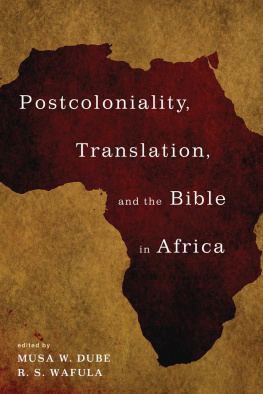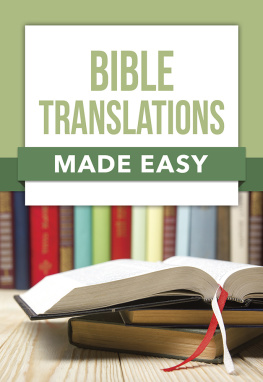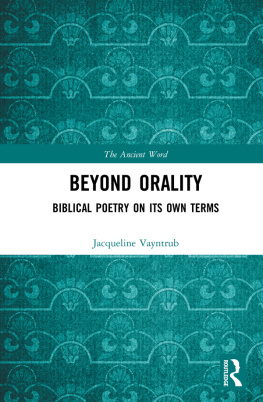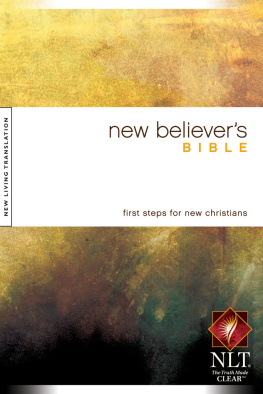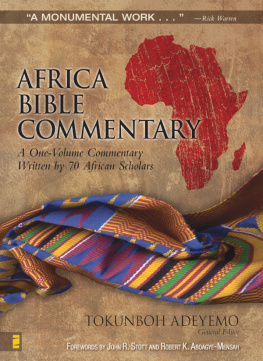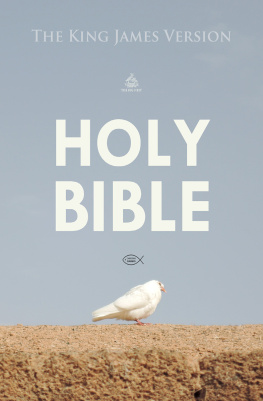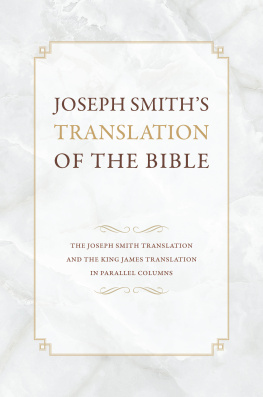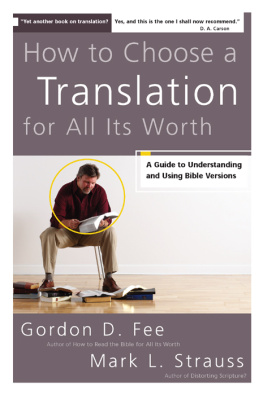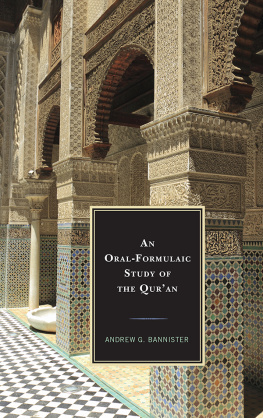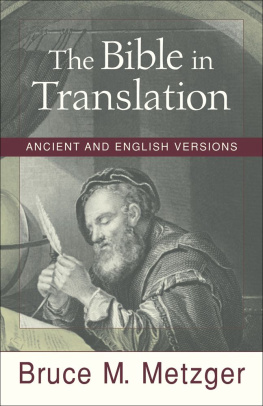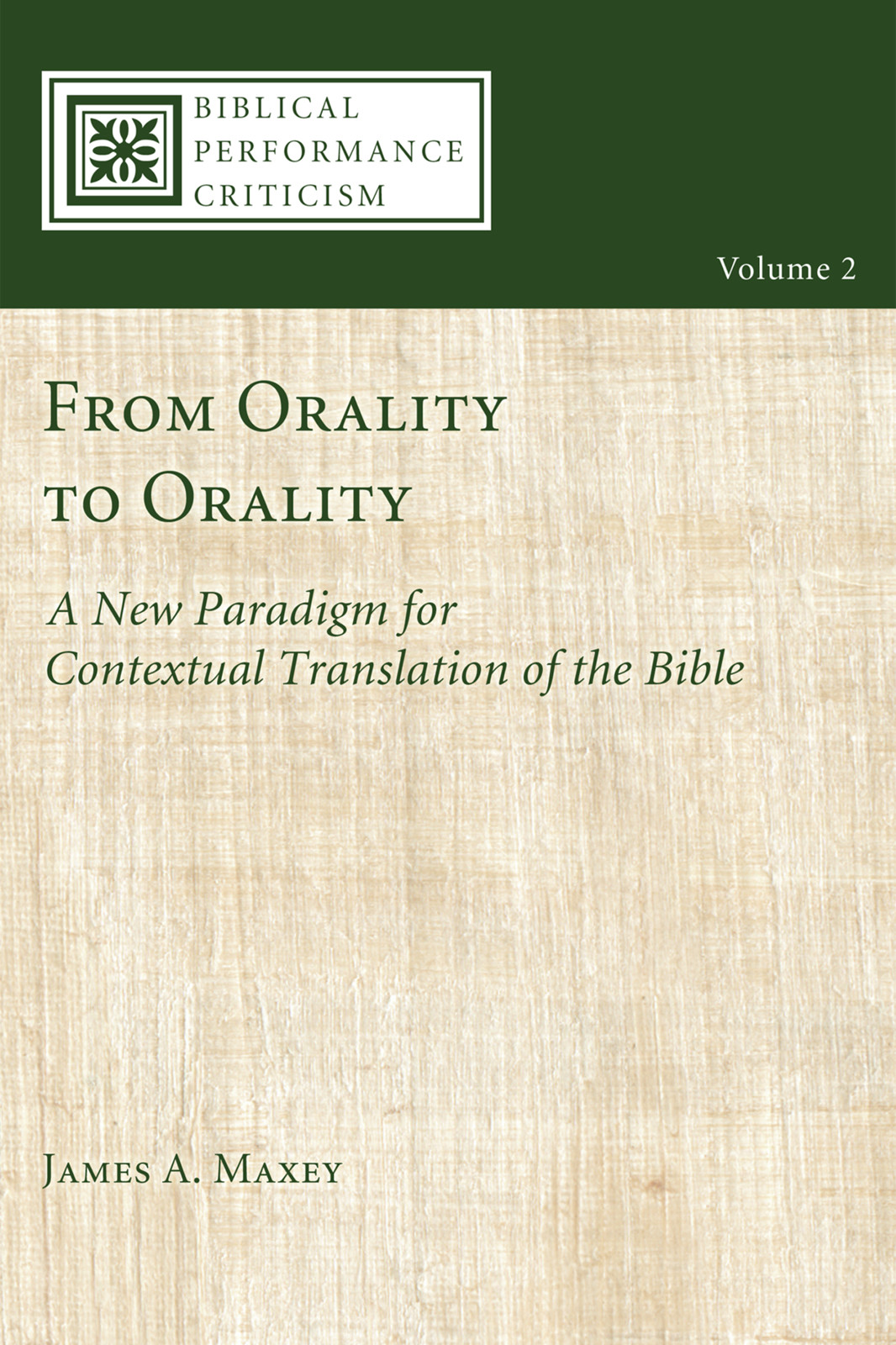From Orality to Orality
A New Paradigm for Contextual Translation of the Bible
James A. Maxey

FROM ORALITY TO ORALITY
A New Paradigm for Contextual Translation of the Bible
Biblical Performance Criticism Series
Copyright 2009 James A. Maxey. All rights reserved. Except for brief quotations in critical publications or reviews, no part of this book may be reproduced in any manner without prior written permission from the publisher. Write: Permissions, Wipf and Stock Publishers, W. th Ave., Suite , Eugene, OR 9740 .
Cascade Books
An Imprint of Wipf and Stock Publishers
W. th Ave., Suite
Eugene, OR 97401
isbn : 978-1-60608-324-6
eisbn 13: 978-1-63087-123-9
Cataloging-in-Publication data:
Maxey, James A.
From orality to orality : a new paradigm for contextual translation of the Bible / James A. Maxey
isbn : 978-1-60608-324-6
xii + p. ; cm. Includes bibliographic references and index.
. BibleCriticism, Performance.. BibleTranslating. 3. Bible, N.T.Criticism, interpretation, etc. 4. Translating and interpretingCamaroon. 5. StorytellingReligious aspectsChristianity. 6. Oral Tradition. I. Title. II. Series.
BS 2555 . M 2009
Manufactured in the U.S.A.
Biblical Performance Criticism
David Rhoads, Series Editor
The ancient societies of the Bible were overwhelmingly oral. People originally experienced the traditions now in the Bible as oral performances. Focusing on the ancient performance of biblical traditions enables us to shift academic work on the Bible from the mentality of a modern print culture to that of an oral/scribal culture. Conceived broadly, biblical performance criticism embraces many methods as means to reframe the biblical materials in the context of traditional oral cultures, construct scenarios of ancient performances, learn from contemporary performances of these materials, and reinterpret biblical writings accordingly. The result is a foundational paradigm shift that reconfigures traditional disciplines and employs fresh biblical methodologies such as theater studies, speech-act theory, and performance studies. The emerging research of many scholars in this field of study, the development of working groups in scholarly societies, and the appearance of conferences on orality and literacy make it timely to inaugurate this series. For further information on biblical performance criticism, go to www.biblicalperformancecriticism.org.
Books in the Series
Holly E. Hearon and Philip Ruge-Jones, editors
The Bible in Ancient and Modern Media:
Story and Performance
James A. Maxey
From Orality to Orality:
A New Paradigm for Contextual Translation of the Bible
David Rhoads
Biblical Performance Criticism:
An Emerging Discipline in New Testament Studies
Forthcoming
Joanna Dewey
Orality, Scribality, and the Gospel of Mark
Pieter J. J. Botha
Orality and Literacy in Early Christianity
To Pam, Sam, Levi, Jane, and Lauren
with great love and affection.
Acknowledgments
I am grateful to the Vut community for their in struction, guidance, and unfailing friendship. This extends beyond the Vut community to my colleagues with the Evangelical Lutheran Church of Cameroon and the Yoko parish of the Roman Catholic Church. Secondly, I am grateful for the guidance of the professors at both the Lutheran School of Theology at Chicago and the Catholic Theological Union. Subjects explored have included a wide continuum, from Missiology to Anthropology, from New Testament studies to Contextual theologies. Thirdly, Lutheran Bible Translators has provided steady support of my work and research for twenty yearsfirst in my MA in Linguistics and then in my PhD studies. I reserve my final acknowledgment of gratitude for my family. They have lived many of the experiences with mefrom Africa and during my study programthat are discussed in this book. I thank them profoundly for accompanying me on this journey.
Preface
In the following pages I intertwine two main sub jects: a proposal for an alternative paradigm for Bible translation as contextualization; a discussion of orality and biblical performance criticism as a methodology for biblical studies and its implications for translation. My research is exploratory and my findings are tentative. There is little public discussion of alternative paradigms for Bible translation, especially one associated with contextualization. My field research with translation of oral performances, both with my own and with the Vut community in Cameroon, is in its early stages. There is a need for more experience with oral performances of biblical compositions.
Historically, critics linked Bible translation directly to literacy and evangelism, and (in)directly to colonial agendas. Those involved in Bible translation in recent centuries have often restricted their purview both in terms of communication media and theological imagination. This book asserts that such views are limited and do not reflect the rich theological heritage of Bible translation. Bible translation is presented in this book as an expression of contextualization that explores the neglected riches of the verbal arts in the New Testament. Beyond a historical study of media in antiquity, a renewed interest in oral performance informs methods and goals of Bible translation today. Such exploration is concretized in the NT translation work in central Africa among the Vut people of Cameroon.
Contextualization as discussed in this study appreciates the agency of local communitiesparticularly in Africawho seek to express their Christian faith in response to the results of human impoverishment. An extended study of African theologians demonstrates the ultimate goals of contextualization: liberation and identity. Bible translation exhibits how vernacular languages empower and equip these local communities to establish and maintain their identities by means of their cultures as articulated by their languages and also how such linguistic expression subverts the dominant languages control. Local communities create fresh pathways of not only responses to existing theological questions, but explore new inquiries of God and humanity.
Oral performance draws from all the senses by experiencing communication while performer, text, and audience negotiate meaning. Performance not only expresses identity but shapes it as communities express their faith in varied contexts. It is argued that the New Testament compositions were initially performed and not restricted to individual, silent reading. This understanding encourages a reexamination of how Bible translation can be done. Performance is not seen as a product but a process that infuses biblical studies with new insights, methods, and expressions. In the case study of the Vut people of Cameroon, a New Testament translation project is reviewed as local performers exhibit their cultural values of the verbal arts in presentations of translated biblical passages informed by a renewed interest in the spoken word.
Introduction
From Orality to Orality
The pages that follow tell a story, a circuitous story. Sometimes we think that things have always been the way they are. Many Christians in North America and Europe understand the Bible to be a literary production like many other books produced today. They understand that access to the Bible is uniquely available by literacy, a type of individual, silent, deciphering of written code. With such assumptions the transmission of the Bible into other parts of the worldfor example Africahas been accompanied by the agenda of literacy. This has been done with minimal attention to what is often a predominant part of everyday life: the verbal arts are often the means of communication. People speak and people hear. Important stories are artfully told, and communities participate in this storytelling that is part of who they are, their identity.


